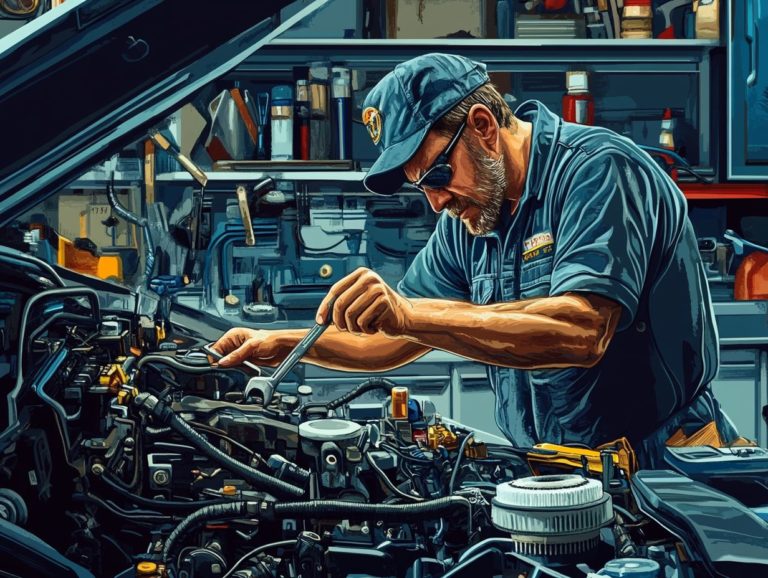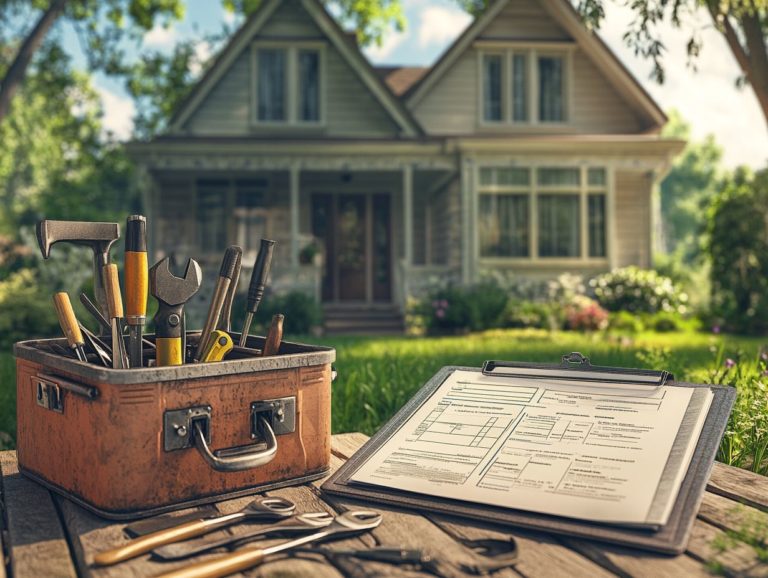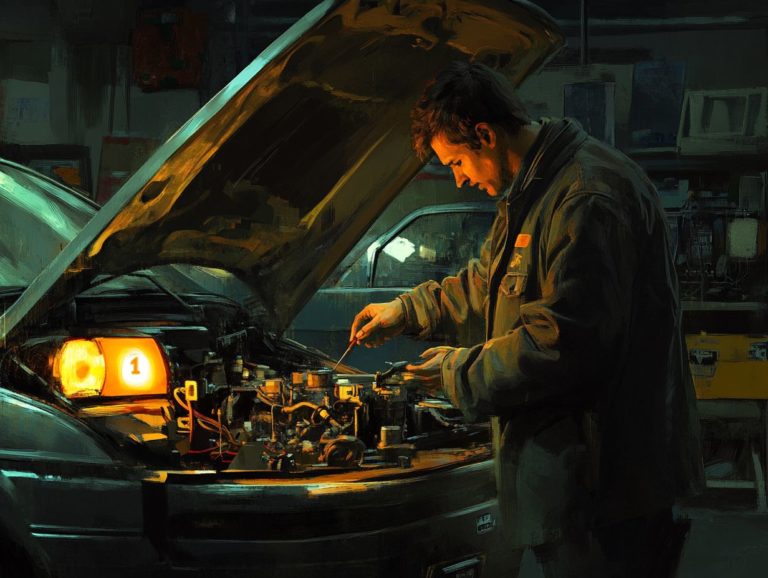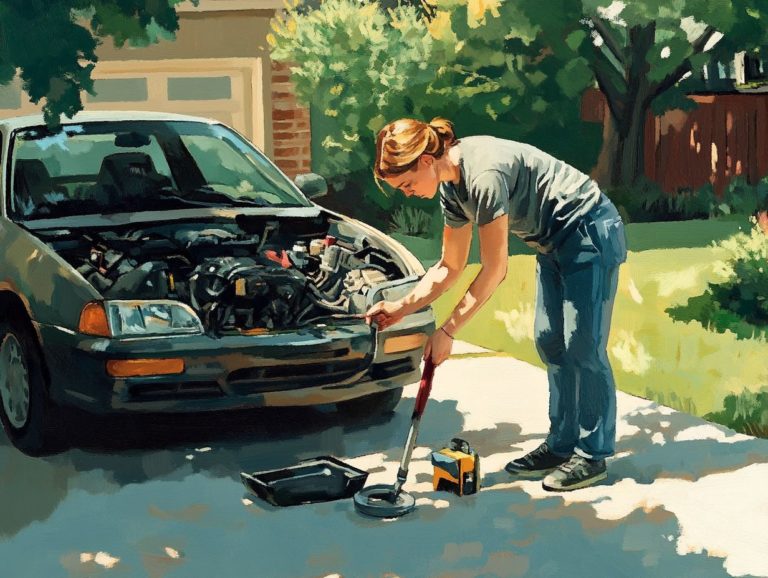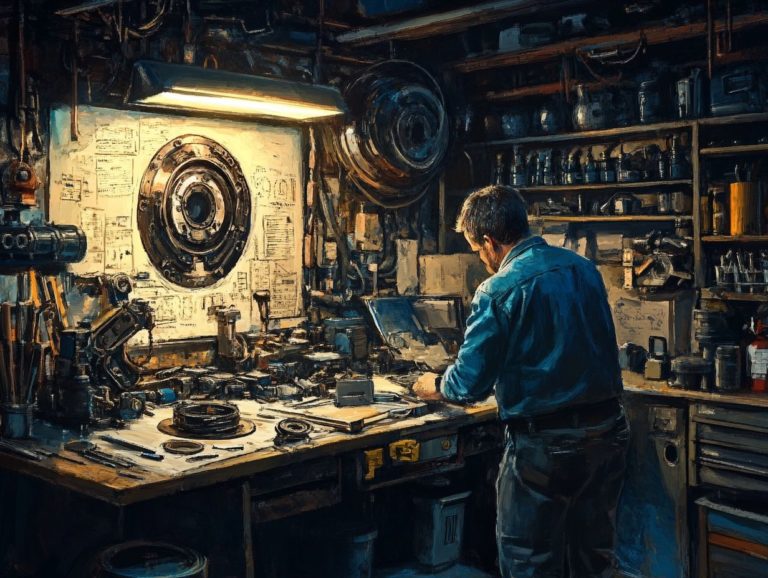Recognizing Common Air Filter Issues
Air filters are essential for creating a clean and healthy environment, whether you re at home or in your vehicle. They effectively capture dust, allergens, and other particles, ensuring that the air you breathe remains fresh and invigorating.
As time passes, these filters can accumulate dirt. This buildup may lead to a range of performance issues. This article delves into the mechanics of air filters, highlights the signs that indicate a dirty filter, addresses common problems, and provides expert tips on when and how to replace and maintain them.
Your air quality is important let s make sure it stays exceptional!
Contents
Key Takeaways:

- Check and replace air filters regularly to boost air quality and extend your HVAC system’s life.
- Signs of a dirty air filter include reduced airflow, increased energy bills, and visible debris.
- Common issues with air filters include clogging, tears, and mold growth from improper maintenance or environmental factors.
Understanding Air Filters
Understanding air filters is essential for maintaining peak engine performance and enhancing air quality around your vehicle. These filters block dirt and pollutants from entering the engine, where fuel burns.
When the air filter is dirty, you might experience problems like sluggish acceleration and diminished fuel economy. If left unaddressed, it can even lead to engine damage. By prioritizing proper air filter maintenance, you can ensure your vehicle operates smoothly and contributes to a healthier environment.
What They Do and How They Work
Air filters are essential components of your vehicle. They ensure that the air entering the engine is clean and free from contaminants.
By trapping dust, pollen, soot, and other pollutants, these filters maintain optimal airflow. This balance is necessary for achieving the right fuel mixture for efficient combustion. When the air filter becomes clogged, it restricts airflow, leading to a rich fuel mixture. This can result in incomplete combustion and increased emissions, which hampers engine efficiency and may cause overheating and damage to engine parts.
Regular maintenance of air filters is vital. It helps keep your engine running smoothly and extends your vehicle’s lifespan.
Signs of a Dirty Air Filter
Spotting the signs of a dirty air filter is key to keeping your vehicle healthy! Symptoms include reduced fuel economy, sluggish acceleration, or that pesky check engine light on your dashboard.
A dirty or clogged air filter can lead to increased emissions, a rough idling experience, and may even produce black smoke from the exhaust or unusual engine noises. By addressing these symptoms promptly, you can ensure your vehicle operates at its best and enjoys a longer lifespan.
Visual and Performance Indicators
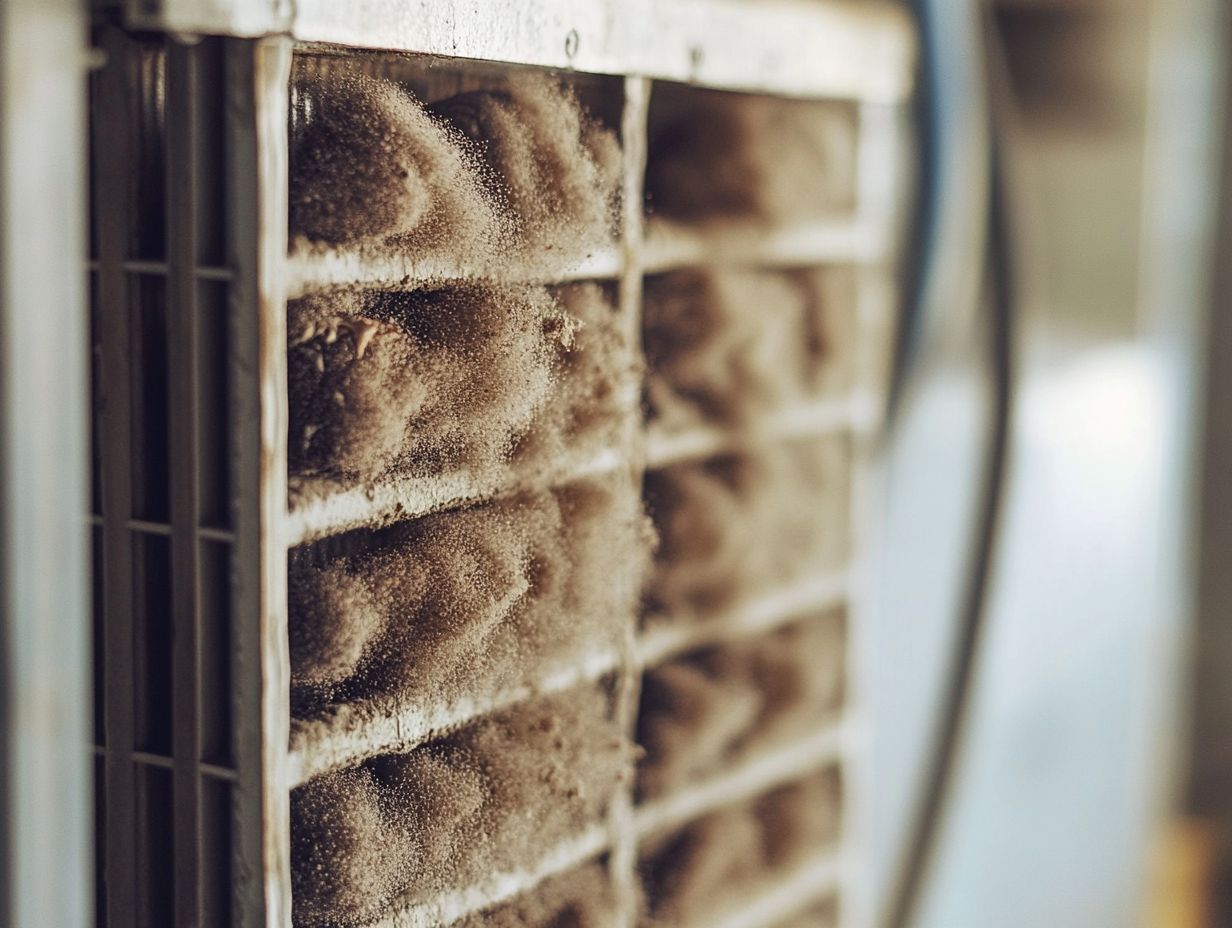
A visual inspection can reveal your air filter’s condition. Look for signs such as discoloration, excessive dust buildup, or tears in the material, as these can compromise air quality and engine performance.
Be mindful of any reduction in airflow. This can cause the engine to work harder, resulting in decreased fuel efficiency and increased emissions. Regular assessments not only extend the life of your air filter but also enhance overall engine health.
Monitoring these aspects ensures optimal vehicle performance and efficiency, enriching both your driving experience and the environment.
Common Air Filter Issues
Common air filter issues can cause significant performance setbacks for your vehicle. When filters become clogged, they affect both efficiency and the longevity of your engine.
A clogged air filter restricts airflow, leading to a poor fuel mixture. This can increase emissions and potentially cause engine damage over time.
To prevent these issues and ensure optimal fuel efficiency, regular maintenance and timely replacements are crucial.
Types of Problems and Causes
A variety of issues can arise from a clogged air filter, notably diminished engine performance and increased fuel consumption due to contaminants obstructing airflow.
When air filters are blocked, harmful particles like dirt, pollen, and oil can hinder airflow, resulting in sluggish acceleration and overall poor efficiency. For example, using a premium air filter brand like FRAM can significantly improve airflow compared to lower-quality alternatives. Additionally, Champion filters are designed to trap a greater volume of contaminants without causing significant restrictions.
Neglecting to replace a clogged air filter can lead to more extensive engine complications in the future. This highlights the importance of regular maintenance to ensure optimal vehicle performance.
Replacing and Maintaining Air Filters
Replacing and maintaining your air filters is essential for ensuring both the longevity and efficiency of your vehicle, as it directly influences engine performance and air quality.
By following the replacement schedule in your owner’s manual, you can avoid many problems related to dirty or clogged filters. These maintenance practices will help extend your vehicle’s lifespan, promote optimal airflow, and maintain fuel efficiency.
When to Replace and How to Maintain
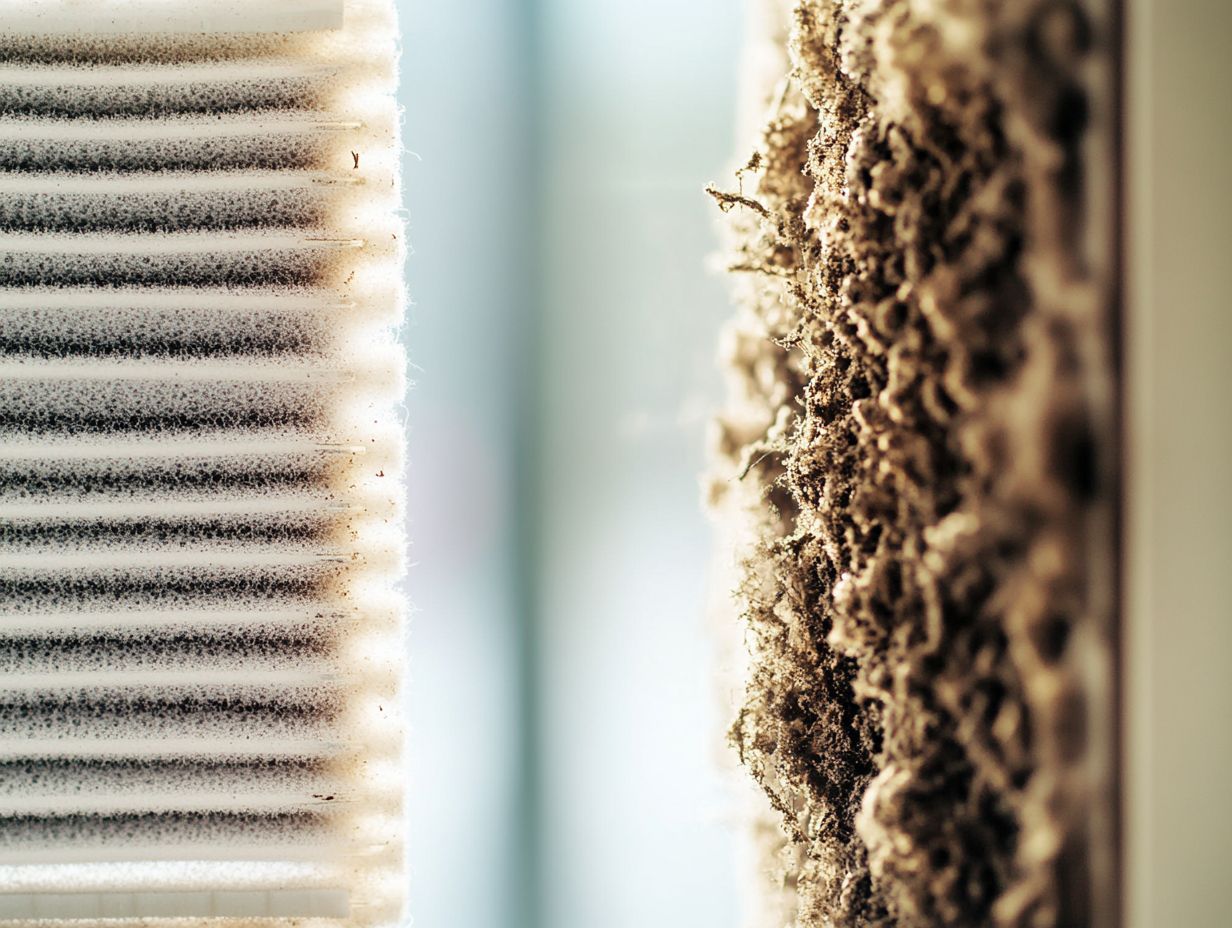
Knowing when to replace your air filter is vital for maintaining your vehicle’s performance. You can often determine this through visual inspections and performance indicators.
Regularly check your air filter at recommended intervals typically every 12,000 to 15,000 miles to avoid costly engine troubles. Watch for signs that your vehicle needs a filter replacement, such as:
- Check fuel efficiency regularly
- Listen for unusual engine noises
- Monitor for a noticeable drop in power during acceleration
When the check engine light comes on, assess the air filter along with other components. Dust and contaminants can clog the filter, restricting airflow and significantly impacting your vehicle’s performance and fuel economy. By staying vigilant, you can ensure your engine operates smoothly and efficiently.
Frequently Asked Questions
What are the signs of a clogged air filter?
Look out for these signs of a clogged air filter: reduced airflow, increased energy bills, and dusty or dirty air inside your home or building.
How often should I change my air filter?
The frequency of air filter changes depends on several factors like the type of filter, the level of air pollution in your area, and how often you use your HVAC system. Typically, air filters should be changed every 1-3 months.
What happens if I don’t replace my air filter?
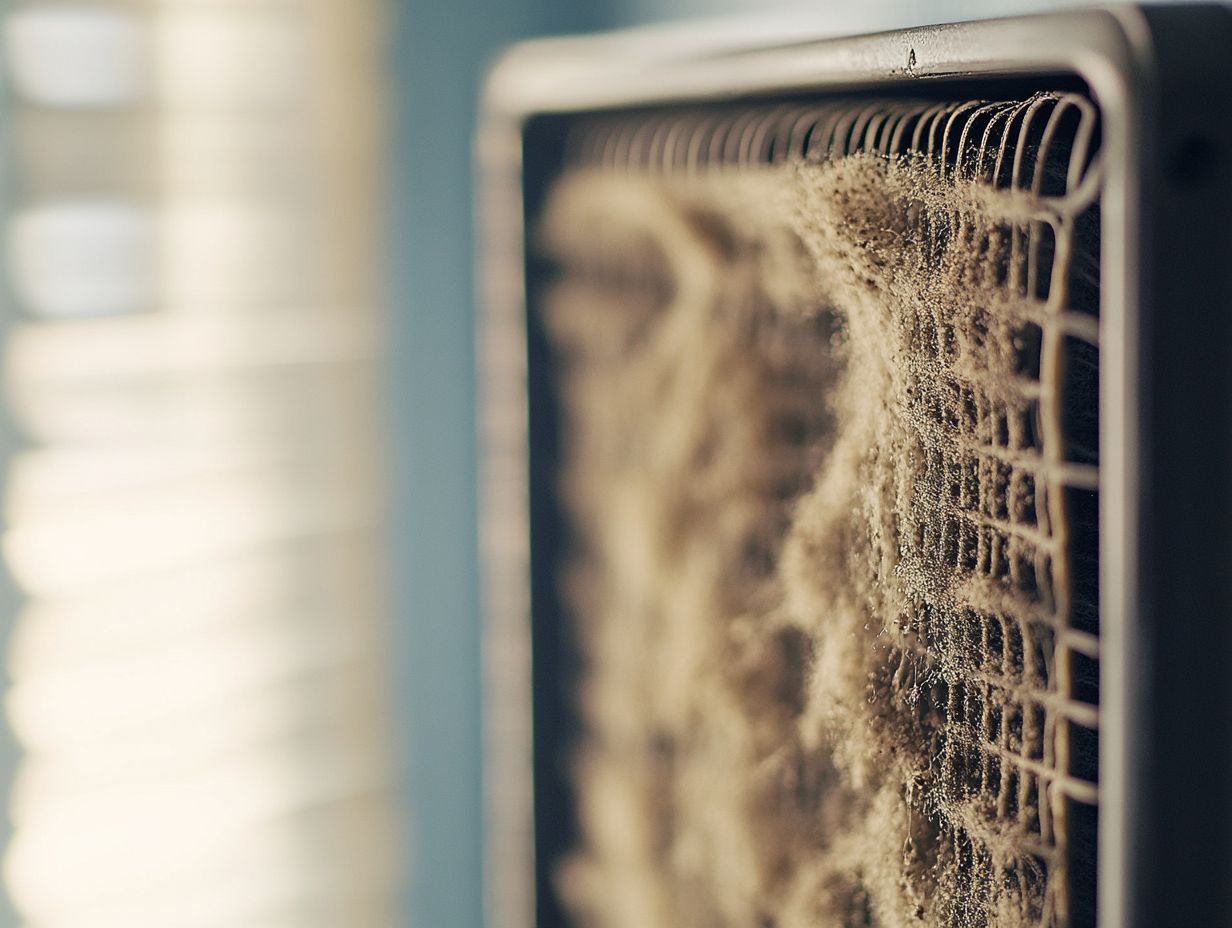
If you don’t replace your air filter, it can clog and restrict airflow. This leads to strain on your HVAC system and may cause damage. Furthermore, it can decrease indoor air quality and affect the health of occupants.
Can I clean and reuse my air filter?
Some air filters can be cleaned and reused, while others require replacement. Always check the manufacturer’s instructions for your specific filter to see if it can be cleaned or needs to be replaced.
Take action now! Regularly check your air filters to keep your vehicle running smoothly. Visit a mechanic if you suspect issues.
How can I tell if my air filter needs to be replaced?
Look for reduced airflow and dusty air. Check the color of your air filter too.
If it looks dark or dirty, it’s time for a new one. Increased energy bills or poor indoor air quality also signal a filter change.
What are some common causes of air filter issues?
Common air filter issues arise from infrequent changes, using the wrong type of filter, or improper installation.
Regularly check and change your air filter to avoid these problems.

